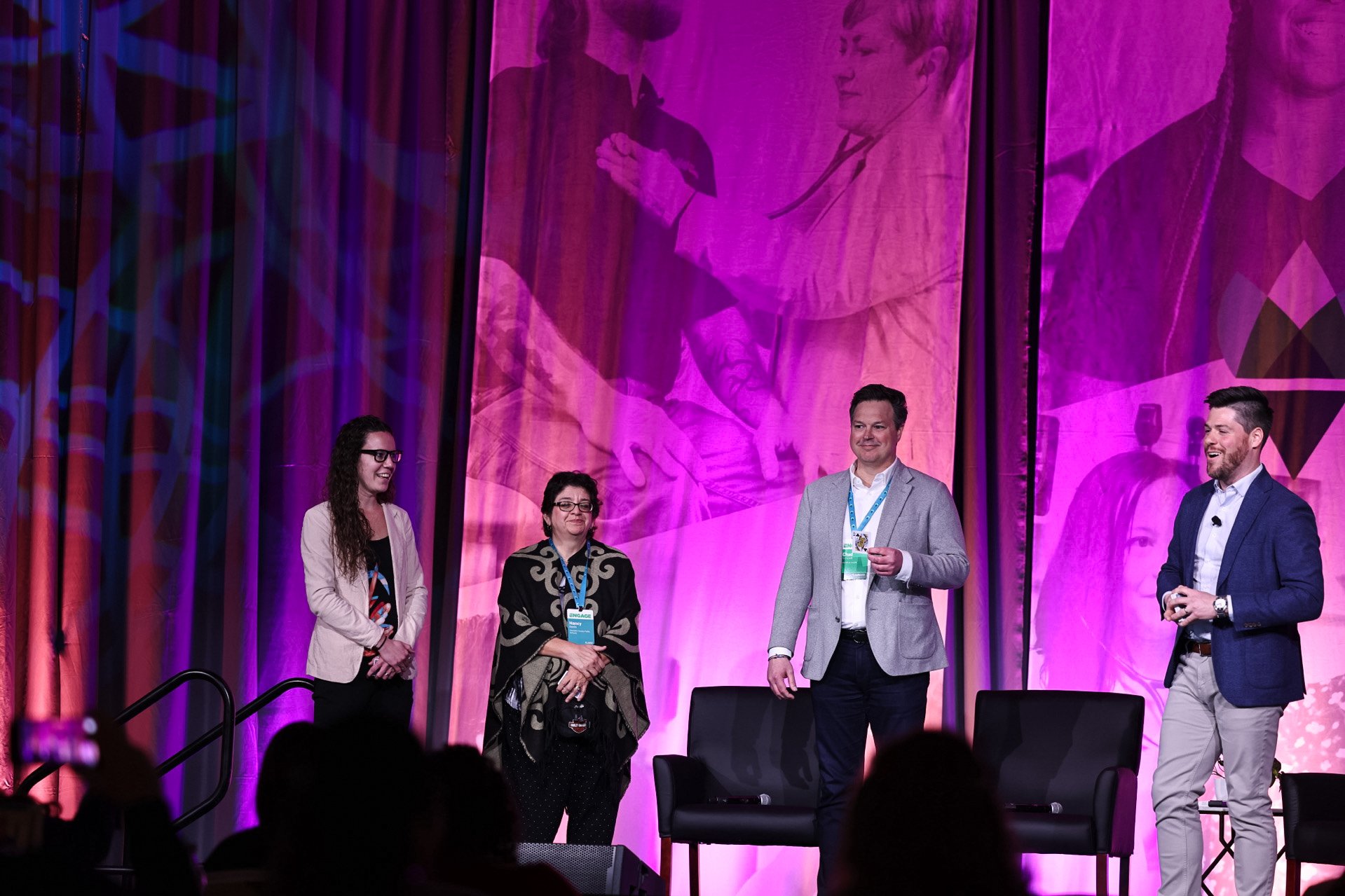
Feb 25-27
2026
The
Broadmoor
Colorado Springs

00
Days
00
Hours
00
Minutes
Head west, healthcare pioneers
Grab your spot at ENGAGE 2026—February 25-27, 2026, Colorado Springs—at legendary destination resort The Broadmoor.
Whether your first time or an annual tradition, ENGAGE is a rare opportunity to forge connections, swap know-how, and celebrate the power of partnership.
Be bold
This year’s theme, Be bold, honors the true trailblazers in better benefits and care—you.
Round up big ideas
Steered by your input, this year's program is shaping up to be more discovery- and action-packed than ever before.
Get ready to:
- Trade proven practices and inspired ideas with your fellow innovators
- Delve deep into the latest trends shaping the industry
- Kick back with a first-class community at a 5-star destination
- See more of what’s in store
Collaboration that inspires: Insights from ENGAGE 2025
Hear from Kendl Behling, Benefits & Wellness Leader at J.J. Keller & Associates, on what makes ENGAGE so unique.

Feedback from our ENGAGE 2025 attendees

I was thrilled to meet other clients in our industry, learn from clients with different models, better understand the services and mission of Marathon Health, and learn the goals of the organization moving forward.
The speakers at the event were nothing short of phenomenal. Each presentation was incredibly informative, offering deep insights into various topics that are crucial for our partnership and growth.
Very well organized with a nice mix of networking and education opportunities.
Great information! Great agenda! Loved hearing success stories from other clients and making new connections.
I learned a great deal and have new ideas to take back to our clinic.


The Broadmoor
Since first opening over a century ago, The Broadmoor has offered guests an incredible way to experience the unique beauty of the American West.
Today, as the world’s longest-running consecutive Forbes Five-Star, AAA Five-Diamond resort, that tradition is met with warm, genuine hospitality and an unmatched selection of adventures and activities celebrating the magnificent surroundings.
Frequently asked questions
Our opening session begins on February 25 at 3:00 pm. We recommend arriving at The Broadmoor by 1:00 pm to get settled and stop by registration before content starts.
The event concludes on February 27 around 12 pm.
Your registration includes:
- Informative sessions
- Networking with other Marathon Health clients
- Meals
- Activities
Guests are responsible for airfare, ground transportation, and hotel costs.
Registration guarantees that you have a room reserved at The Broadmoor for the event. We will book the hotel room for you at our reduced rate of $299 per night.
Guests are responsible for paying the cost of their hotel stay upon check-in.
If you are no longer able to attend after registration and would like someone else from your organization to attend in your place, please email us at engage@marathon.health.
Yes, you can cancel your registration before January 31, 2026. After that date, we request that you transfer your registration to a different attendee. If you have registered and would like to cancel, please email us at engage@marathon.health.
We understand that many organizations are reviewing their travel and expense policies more closely. The benefits of attending ENGAGE far outweigh the cost, and we have prepared a justification letter to help you get approval.

SHRM Professional Development Credits
Exciting news! Marathon Health is recognized by SHRM to offer professional development credits (PDCs) for SHRM-CP® or SHRM-SCP® recertification activities.
By attending ENGAGE 2026 sessions, you’ll elevate your benefits strategy and earn credits that advance your SHRM certification. All credential holders are eligible to receive credit towards their recertification and will be awarded for the in-person sessions they attend.
For more information about certification or recertification, please visit shrmcertification.org. Please note that PDCs are not awarded for viewing archived recordings.
All attendance will be monitored and recorded. To receive PDCs, attendees must sign in and remain for the duration of the session.

More highlights from ENGAGE 2025


















